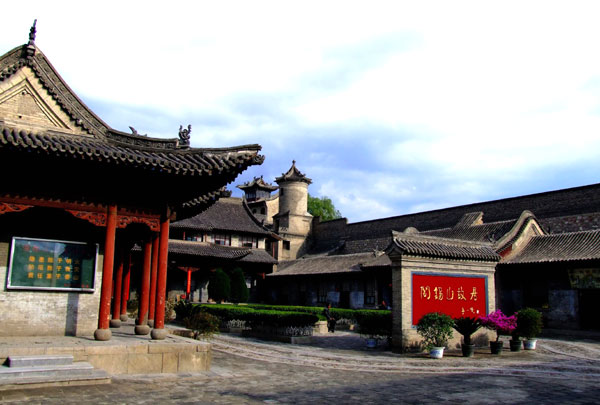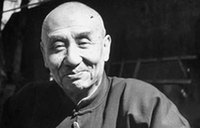Former residence shows care taken by designer
 |
|
The former residence of Yan Xishan (1883-1960) in Dingxiang county, Shanxi province, has been well preserved, through which visitors can sense Yan's wisdom and talent. [Photo by An Haozheng/for China Daily] |
Kuomintang leader grew up near two founding fathers. Li Yang and Sun Ruisheng report in Dingxiang, Shanxi province.
|
|
Dingxiang county in Shangxi province is well-known for its beautiful Taihang Mountains landscape and numerous Buddhist temples.
Less known is that the county produced three important figures in China's recent history. Bo Yibo (1908-2007) and Xu Xiangqian (1901-1990) were two founding fathers of the People's Republic of China, and Yan Xishan (1883-1960) was one of the most famous warlords with the Kuomintang.
The former residences of the three are located dozens of kilometers from each other along the Yutuo River, where they each grew up but did not meet each other until the war, in which they served on opposing sides.
All three were prestigious strategists in both warfare and economic construction. Only Yan's residence has been preserved, through which visitors can sense the former owner's wisdom and talent.
Bo and Xu's residences, both small plain courtyard houses rebuilt after the former shanties collapsed long ago, are popular sites with visiting officials. Yan's residence, the only original and 30 times larger, is more popular with regular tourists.
Yan spent 14 years expanding his home from one courtyard to nearly 30 courtyards, consisting of more than 800 rooms covering an area of about 620,000 square meters.
Local residents say Yan's residence is a realistic depiction of his personality.
Although only 18 courtyards and some 500 rooms survived the "cultural revolution" (1966-76), it is very easy for visitors to get lost in the labyrinth Yan designed himself with interconnected courtyards, which differ from each other by merely small distinctions.
There were at least three large expansion projects from the early 1920s to 1930s, after Yan's three major promotions from a general of the local army to a provincial governor and then a State leader of the former Republic of China.





















